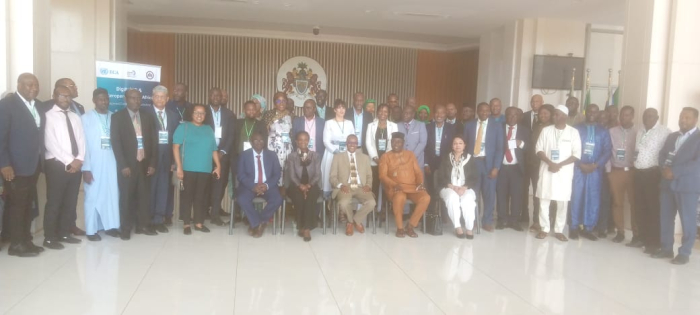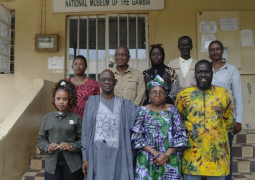
Madam De made these remarks on Tuesday during the opening of regional workshop on Digital ID and Interoperability in Africa organised by the of The Gambia government through the Ministry of Communications and Digital Economy at the OIC Conference Center, Bijilo.
The 3-day workshop, attended by 32 African countries, was organised in collaboration with United Nations and Economic Commission for Africa.
The Digital Transformation Strategy for Africa aims to advance and integrate an inclusive African digital society. To meet its vision, the strategy aims to build secured digital market in Africa by 2030 that enables free movement of persons, services and capital and ensures that both individuals and businesses can trade in the Africa Free Trade Continental Area.
The strategy aims to ensure that 99.9% of the people in Africa have digital legal ID as part of the civil registration system by 2030.
The UNDP country representative also said that the Digital ID and Interoperability’s inclusiveness and interconnectivity will also help to reduce inequalities and ensure everybody has access to services.
She described Digital ID and interoperability as an important part of the digital transformation of the world, African continent and The Gambia in particular.
She added that it is essential for including the efficency and operations of services and the holistic approach to government’s ability of service systems to share and exchange information between institutions.
The Gambia Social Registration is expected to increase the accuracy of population data, help reduce statelessness and enable access to vital services such as health care, education and social protection.
The UNDP stated that it would also strive to increase social justice on assistance to vulnerable people and increase transparency and accountability in public institutions.
The Digital ID, Madam De added, would also transform people’s lives especially women, youth and people living with disabilities.
Hon. Ousman Bah, minister for Digital Economy and Innovation, said Digital ID is among the priority areas he set for his ministry, adding that their quest to establish a national payment gateway and promote a cash light environment cannot be realised without Digital ID.
He pointed out that they need Digital ID to instill security confidence in the use of E-Serices and take advantage brought by technology to achieve their development aspirations.
He went on to say that they must promote trade across borders with payments needed with Digital ID systems that are open to interoperability.
Minister Bah also said that in developing their system for the Digital ID, they must ensure its security, compatibility and interoperability.
“Today you cannot run your economy or plan your economy without having a Digital ID,” he stated, saying their system of payment has to be integrated and connected to communicate and facilitate transaction cross border payment.
Mactar Seck, the UN Economic Commission for Africa representative, described Digital ID as a very important step for development of a country but stated that Africa is lagging behind.
Mr. Seck added that without Digital ID, “we cannot succeed with our policy plan for economic development.”
He remarked that despite several progress made by African countries they still face key challenges such as lack of strong political will as well as public awareness on the importance of the Digital ID.
“We are in the digital era and need to have the Digital ID taken into consideration in the new policy development of the country,” he stated.
He urged government to ensure all development stakeholders are involved in the Digital ID programme as well as develop capacities.
He expressed their readiness to continue to work with government to define the pathway for Digital ID development in the African continent.





